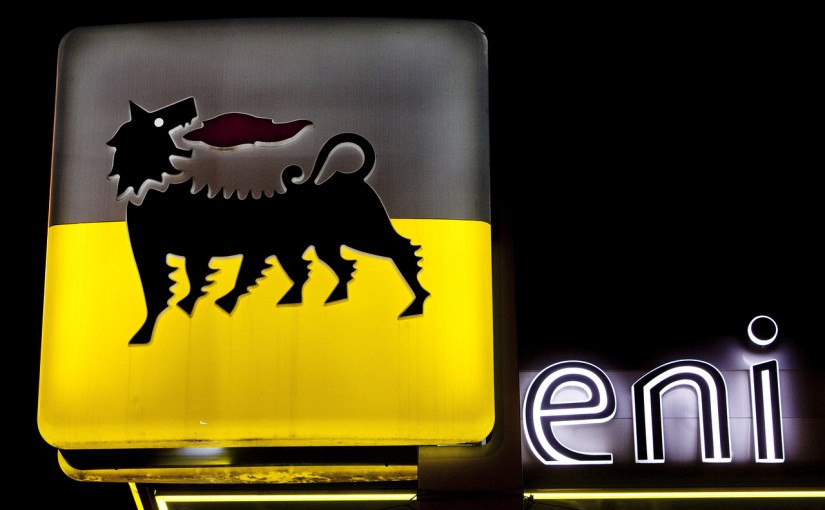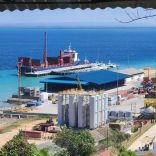Sasol Women in Accounting Programme contributes to the upskilling of Mozambique workforce
Exxon deal with ENI expected to bring hundreds of millions of dollars in capital gains for Mozambique

File photo / Eni's logo
The world’s largest oil company, ExxonMobil, has announced that it has entered into an agreement with ENI (Ente Nazionale Idrocarburi) to purchase 25 percent of the concession that Italian energy company has in the Rovuma basin natural gas exploitation Area 4. The official reaction of the government of Mozambique to this US$2.8 billion deal is awaited, particularly from the Tax Authority which stands collect about 32 percent of that amount in taxes, but which some years ago, A Verdade reports, had to prevent ENI evading the tax payments in a similar financial transaction.
“This strategic investment will enable ExxonMobil’s expertise in liquefied natural gas to support the development of Mozambique’s abundant natural gas resources,” said the company’s chief executive, Darren Woods, in the statement.
ExxonMobil will focus its efforts on the construction and operation of the liquefaction plants while the Italian oil company will continue to lead the floating gas extraction platform installation.
ExxonMobil will indirectly acquire its stake through the acquisition of 35.7 percent of ENI East Africa which owns 70 percent of the consortium that will operate Area 4, which holds an estimated 85 trillion cubic meters of gas. The remaining 30 percent of Area 4 is held by Portugal’s Galp, Mozambique’s ENH and the South Korean Kogas, each with 10 percent.
Another 35.7 percent of ENI East Africa is held by ENI and 28.6 percent by the Chinese National Petroleum Corporation.
Although the announcement of this important agreement for the start of natural gas exploration in Mozambique still lacks the approval of Filipe Nyusi’s government, previous meetings between senior representatives of the companies and the head of state have indicated that agreement will be a formality. During his visit to the United States last September, Nyusi visited ExxonMobil’s headquarters and met with its former “boss” and current US Secretary of State, Rex Tillerson.
Previous operation and capital gains
ENI tried to evade tax office demands in a similar previous financial operation, but because of the economic and financial crisis that Mozambique is experiencing as a result of the discovery of undisclosed state-guaranteed debts in April 2016, which slashed income from cooperation partners and direct foreign investment, any prospective income will be welcomed.
Beyond the investment expected to take place – with China’s state-owned CNPC yet to announce its final decision for Area 4 – this financial transaction could benefit state coffers by several hundred millions of US dollars from ENI and ExxonMobil capital gains tax. By law, the Tax Authority can tax around 32 percent of the amount of the operation.
However, the Tax Authority’s Amélia Nakhare should remember that in 2013, when ENI sold 20 percent of the same concession to Chinese National Petroleum Corporation for US$4.16 billion, the Italian company tried to evade tax demands by arguing that that it was selling a portion of a subsidiary of his registered in Italy.
Only after negotiations personally involving President Armando Guebuza and ENI’s then executive director Paolo Scaroni, did the Italian oil company agree to pay US$400 million in capital gains tax and to invest another US$130 million in the construction in a gas-powered electricity plant in Cabo Delgado.
A poor deal for the treasury when according to the capital gains tax formula of 32 percent the amount would have been around US$1.3 billion, writes A Verdade.













Leave a Reply
Be the First to Comment!
You must be logged in to post a comment.
You must be logged in to post a comment.